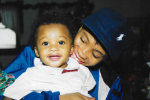We live at a very strange moment in history. A confluence of peoples, cultures, customs, and moral standards makes us all more aware than ever of our own mores and precepts. But few groups of people anywhere, anymore, can assume that the standards of their group will be the sole standard of the nation in which they live.
Nor have they ever been, incidentally. In the United States, for instance, we have always had a Protestant/ Catholic dichotomy, while multiple traditions of Judaism, Islam, Buddhism, and Hinduism have sprung up in the last century. The Amish and Mennonites have for generations lived in our midst, a highly moral people who express their morality differently from most of the rest of the United States. We have watched group after group of immigrants adjust to being “American” and yet remain true to their own religious rituals and rules at the same time.
Obviously, it is possible for a diverse population to agree on common standards of the public good and civic standards while they themselves continue to operate out of their own particular ethical and religious frameworks.
So, what does it really mean now, as the ancient spiritual “Work of Mercy” counsels us, to “admonish the sinner”? Surely it does not mean that we must see that everybody else be like us.
And yet, unless we do, how can we possibly correct ethical abuse in a pluralistic society?
There was a time when prisons set out to be rehabilitative institutions. They provided the job training, spiritual counsel, and educational background prisoners lacked in order to be better human beings as well as citizens in the future. Now we warehouse prisoners without the personal or spiritual resources human development demands till their terms expire or DNA tests prove their innocence. Then we release them no more prepared to live the life ahead of them now than they were in the past.
Point: To admonish the sinner requires that, as a society, we do more than punish people who violate our common civic standards. We need to do more than criticize the sin or condemn the sinner to one kind of social exclusion or the other. We must provide the educational systems, the social support structures, and the criminal justice system it will take to define what is socially desirable for the entire society and make it personally attainable.
Before we “admonish the sinner,” in other words, we need to admonish ourselves a bit for what we are failing to provide for those we are admonishing.
SATURDAY, FEBRUARY 1: Human failure is a very human thing. It is common to us all. What is not common is that we allow it to rule us.
SUNDAY, FEBRUARY 2: Holiness does not lie in going against nature. It lies in bringing out the best in it.
MONDAY, FEBRUARY 3: “What do you do in a monastery?” a disciple asked the old monastic. And the monastic answered simply, “We fall and we get up and we fall and we get up and we fall and we get up again.” It is the “getting up” that requires help.
TUESDAY, FEBRUARY 4: We are all capable of being better than we are. But for most of us that requires good formation, kind attention, loving correction, and the desire to succeed.
WEDNESDAY, FEBRUARY 5: Conscience is the voice that reminds us that we have not lived up to our own best ideals. The psychologist Carl Jung wrote: “Deep down below the surface of the average conscience a still, small voice says to us, ‘Something is out of tune.’”
THURSDAY, FEBRUARY 6: Conscience is what stops us just before we sin. Learning to listen to the voice deep within is the difference between living an average life and living a great life. “Every great mistake,” Pearl Buck wrote, “has a halfway moment, a split second when it can be recalled and perhaps remedied.”
FRIDAY, FEBRUARY 7: Good development requires that we have good friends, friends who themselves listen for the voice of God in life. Or, as Abraham Lincoln put it, “Stand with anybody that stands right. Stand with them while they are right and part with them when they go wrong.”
SATURDAY, FEBRUARY 8: Learning to choose good from good and best from better is the highest achievement of the human spirit.
SUNDAY, FEBRUARY 9: Failure is not fatal. In fact, it is failure that enables us to grow. It gives a reason to begin again.
MONDAY, FEBRUARY 10: When we begin to own our errors, when we begin to take responsibility for our mistakes, we will have become adults. Then, we become spiritually mature.
TUESDAY, FEBRUARY 11: Sin is the sign that something is missing in our lives. “All sins are attempts to fill voids,” Simone Weil wrote. Admonishment will only work, then, when we know what we’re really looking for— and pursue it instead.
WEDNESDAY, FEBRUARY 12: To make a sin undesirable is far more important than simply punishing people for doing it. The United States has four percent of the population of the world and more than twenty percent of its prisoners. Clearly our prison systems don’t work. Isn’t it time to ask ourselves why?
THURSDAY, FEBRUARY 13: When “accuse” and “admonish,” “punish” and “rehabilitate” become synonyms, it is clear that a society is failing in its responsibility—both to the victim and to the victimizer.
FRIDAY, FEBRUARY 14: Most of the people in prisons are poor but most of the crime in the world is not committed by the poor. Go figure.
SATURDAY, FEBRUARY 15: It is possible to break a person. It’s rebuilding them that takes care, skill and commitment. “The idea that people sin and that therefore their behavior at times needs to be restricted, is fair enough; but the emphasis on control through fear, shame, and punitiveness,” Anne Borrowdale writes, “does not create a society at ease with itself.”
SUNDAY, FEBRUARY 16: Antony of Egypt, one of the great monastics of the desert wrote once, “Do not trust in your own righteousness; do not grieve about a sin that is past and gone; and keep your tongue and your belly under control.” Consider yourself admonished–and listen carefully.
MONDAY, FEBRUARY 17: Sin is a function of being human. We are not perfect, and we fail. But sin is a teacher. We learn when we sin that the purpose of time is to repent, to do better, to trust in God’s mercy. “Sin, in a way,” Charles Handy wrote, “is God’s gift to humanity.”
TUESDAY, FEBRUARY 18: Only when we lose hope in the mercy of God and in our own genuine determination to do better have we really abandoned ourselves to living a life beneath God’s will for us. “It is more serious,” John of Carpathos wrote, “to lose hope than to sin.”
WEDNESDAY, FEBRUARY 19: There is one holy goal in life: to refuse to make life more difficult for others than it already is. Then, if I can truly do that, the difficulties of my own life can only disappear.
THURSDAY, FEBRUARY 20: When we say “that’s just the way I am,” we abandon fullness of life for fullness of the present moment. In the light of eternity, that is, at best, a very bad bargain.
FRIDAY, FEBRUARY 21: However animalistic a human being acts, treating them like animals will never make full human beings out of them, no matter how many years we try.
SATURDAY, FEBRUARY 22: It can take a long time to become the person we really want to be. As Mary Pickford writes, “You may have a fresh start any moment you choose, for this thing we call ‘failure’ is not the falling down, it is the staying down.”
SUNDAY, FEBRUARY 23: Failing to try to be more than our lowest self is a greater sin than the sin itself.
MONDAY, FEBRUARY 24: Those who have touched the God who lives within themselves, with all their struggles, all their lack, see God everywhere and most of all in the helpless, fragile, pleading, frightened other. Contemplatives do not judge the heart of another by a scale on which they could not be vindicated.
TUESDAY, FEBRUARY 25: Be sure that when you preach against the sin, you do not sin yourself by attacking, exposing and incriminating the sinner.
WEDNESDAY, FEBRUARY 26: Before you punish the sin or humiliate the sinner, think carefully about what it was that saved you from your sins. “There is no saint without a past,” the Persian proverb teaches. “And there is no sinner without a future.”
THURSDAY, FEBRUARY 27: When we begin to own our errors, when we begin to take responsibility for our mistakes, we will have become adult. Then, we become spiritually mature.
FRIDAY, FEBRUARY 28: Before we condemn, it might be good to remember the ancient monastics who taught: Once a brother committed a sin in Scetis, and the elders assembled and sent for Abbot Moses. He, however, did not want to go. Then the priest sent a message to him saying: “Come, everybody is waiting for you.” So he finally got up to go. And he took a worn-out basket with holes, filled it with sand, and carried it along. The people who came to meet him said: “What is this, Father?” Then the old man said: “My sins are running out behind me, yet I do not see them. And today I have come to judge the sins of someone else.” When they heard this, they said nothing to the brother, and pardoned him.
LET’S SHARE OUR THOUGHTS
The following discussion questions, Scripture echo, journal prompts, and prayer are meant to help you reflect more deeply on The Monastic Way. Choose at least two suggestions and respond to them. You may do it as a personal practice or gather a group interested in sharing the spiritual journey.
DISCUSSION QUESTIONS
1. Have you had the experience of being “admonished,” or set straight in a meaningful way? What was that like? What changed for you because of this?
2. Which daily quote in The Monastic Way is most meaningful to you? Why? Do you agree with it? Disagree? Did it inspire you? Challenge you? Raise questions for you?
3. After reading The Monastic Way, write one question that you would like to ask the author about this month’s topic.
4. Joan Chittister uses other literature to reinforce and expand her writing. Find another quote, poem, story, song, art piece, novel that echoes the theme of this month’s Monastic Way.
5. On February 22, Sister Joan writes, “It can take a long time to become the person we really want to be.” Has this been true in your experience? What, if any, good things have come out of the years of failing, learning, growing, and trying again?
JOURNAL PROMPTS
Prompt 1: Here are a few statements from this month’s Monastic Way. Choose one that is most helpful to you and journal with it.
• Failure is not fatal. In fact, it is failure that enables us to grow.
• Most of the people in prisons are poor but most of the crime in the world is not committed by the poor. Go figure.
• There is one holy goal in life: to refuse to make life more difficult for others than it already is.
Prompt 2: Spend a few minutes with this photograph and journal about its relationship to this month’s Monastic Way. You can do that with prose or a poem or a song or....
SCRIPTURE ECHO
“Jesus said, 'I tell you the truth, unless you change and become like little children, you will never enter the kingdom of heaven.’”—MATTHEW 18:3
PRAYER
My God,
I have no idea where I am going.
I do not see the road ahead of me.
I cannot know for certain where it will end.
nor do I really know myself,
and the fact that I think I am following your will
does not mean that I am actually doing so.
But I believe that the desire to please you
does in fact please you.
And I hope I have that desire in all that I am doing.
I hope that I will never do anything apart from that desire.
And I know that if I do this you will lead me by the right road,
though I may know nothing about it.
Therefore will I trust you always though
I may seem to be lost and in the shadow of death.
I will not fear, for you are ever with me,
and you will never leave me to face my perils alone.
- Thomas Merton

 Artwork: by Karen Bukowski
Artwork: by Karen Bukowski




